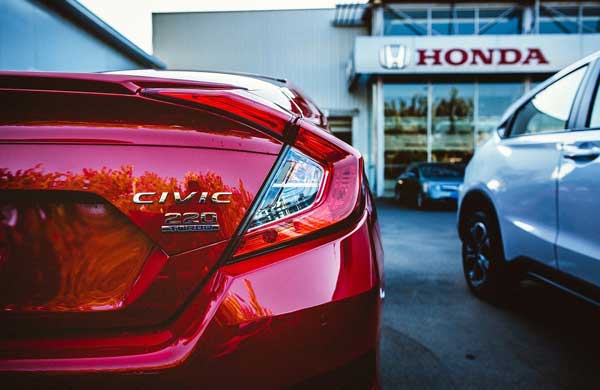Honda and Nissan merge to compete with China

[A Honda car dealership. Credit to Pixabay]
Japanese automakers Honda and Nissan have announced plans for a merger aimed at countering the rivalry from the Chinese automotive sector.
This merger would position the combined company among the world’s top five car producers alongside Toyota, Volkswagen, General Motors and Ford.
Honda emphasized that a comprehensive strategy to fight back must be in place by 2030 or else they risk being outperformed by competitors, and the possibly multibillion dollar agreement to counter the rise of Chinese power was a major motivator for the plan.
The merger, which would also include Mitsubishi—of which Nissan is the largest shareholder—all three businesses would be able to pool their resources to compete with other electric vehicle manufacturers like Tesla.
Chinese-made electric vehicles, particularly from brands such as BYD, have rapidly gained dominance in the expanding electric car market, posing a danger to some of the most well-known automakers in the world.
Due to increased competition, many automakers are finding it difficult to compete in China.
This is due to the fact that local companies are more agile and can provide their products at lower prices than their international rivals, which makes them much more appealing to consumers.
As a result, China has become the largest producer of electric vehicles worldwide.
After the majority of member states supported the proposals, EU officials said in October that the Chinese government was unfairly subsidizing its EV manufacturers and imposed high levies on EV imports into the EU from China.
For the next five years, the tariffs are set to increase from 10% to 45%, raising concerns that this could make EVs more expensive for consumers.
Nissan and Honda reported combined sales of over $191 billion.
In March, the two Japanese automakers decided to investigate a strategic alliance for electric cars (EVs) and also agreed to cooperate on batteries and other technology.
The negotiations stemmed from their shared belief that they need to strengthen their capacity to combat competition, particularly the current emerging forces, by 2030 is what sparked the negotiations.
According to Honda, the agreement was not a rescue of Nissan, which has been having trouble with declining sales.
In order to address a decline in sales in China and the US, Nissan announced in November that it will reduce global production by about 9,000 positions.
This reduction will lead to Nissan’s car production dropping by a fifth worldwide.
Once a symbol of power of Japanese auto manufacturing, Nissan has been struggling to regain its footing in recent years following the arrest of longstanding CEO Carlos Ghosn.
When Mr. Ghosn fled Japan in 2019, he was charged with financial misconduct.
He is currently the target of an Interpol Red Notice, which is a request for law enforcement around the world to track for and apprehend someone.
In December, Mr. Ghosn, now residing in Lebanon, told reporters that Nissan's ambitions to merge were a desperate and panicked move.
Any merger would be contingent on Nissan's recovery.
Any agreement, meanwhile, is likely to face fierce political scrutiny in Japan because it might lead to job losses, and Nissan is probably going to sever ties with the French automaker Renault.

- Stella Kim / Grade 10
- Big Heart Christian School

![THE HERALD STUDENT REPORTERS [US]](/assets/images/logo_student_us.png)
![THE HERALD STUDENT REPORTERS [Canada]](/assets/images/logo_student_ca.png)
